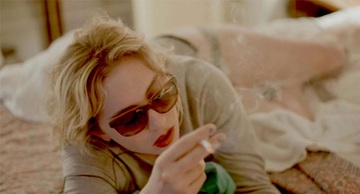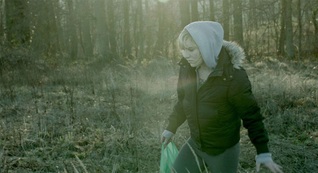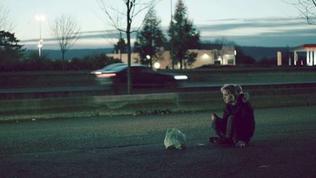
Everyone has gotten to that point in life where all they want to do is run. Run as far as they can. Away from everything and on their own. Zoé tries to escape herself. She travels north through bleak landscapes until she gets on a ferryboat, where a mysterious woman suddenly disappears. In the winter coat of a stranger, Zoé reaches the other side of the Channel.

Chammah may be the anchor, but this is director/writer/cinematographer Lorenz Merz's beast, delivering a masterclass in up-close, claustrophobic filmmaking. Merz focuses on immediacy, moving his lead actress with the lens close, even intrusively so, rarely holding more than several steps distance. It builds moments in which the fourth wall is broken for a short time. In these moments, the audience experiences a strong, seemingly physical intimacy.

Merz has been backed up with some excellent sound design. Radio messages, 50s rock and roll music, the ocean, a strange female voice from the off: The fever-dreamy state of Zoé is enhanced by orientation unwilling music, sounds and words. It is beautiful to watch.
Technically, the film is superb. Logically and narratively-speaking, the film is odd to say the least, but it's enticing and gripping. Narrative is minimal in Cherry Pie, as is dialogue. What exactly motivates Zoé, what she thinks, where she is going - we can only guess. She slowly sinks into a catatonic silence. It's a film I'd like to study, for sure. Everything feels like it's there for a reason and I would love to find out why.
Cherry Pie is a lesson in how to make a film with limited plot. There's no twists, heavy dialogue or even characters of note. This is a clinic in filmmaking, editing and sound design, and it's worth watching for that alone. Whether it becomes more than that is something that will be told on more viewings, but I will tell you this, I do want to watch it again.
Cherry Pie is screening as part of the East End Festival. Catch it Thursday 19th of June with a Q&A at Hackney Picturehouse. Check the full line up here.

 RSS Feed
RSS Feed
